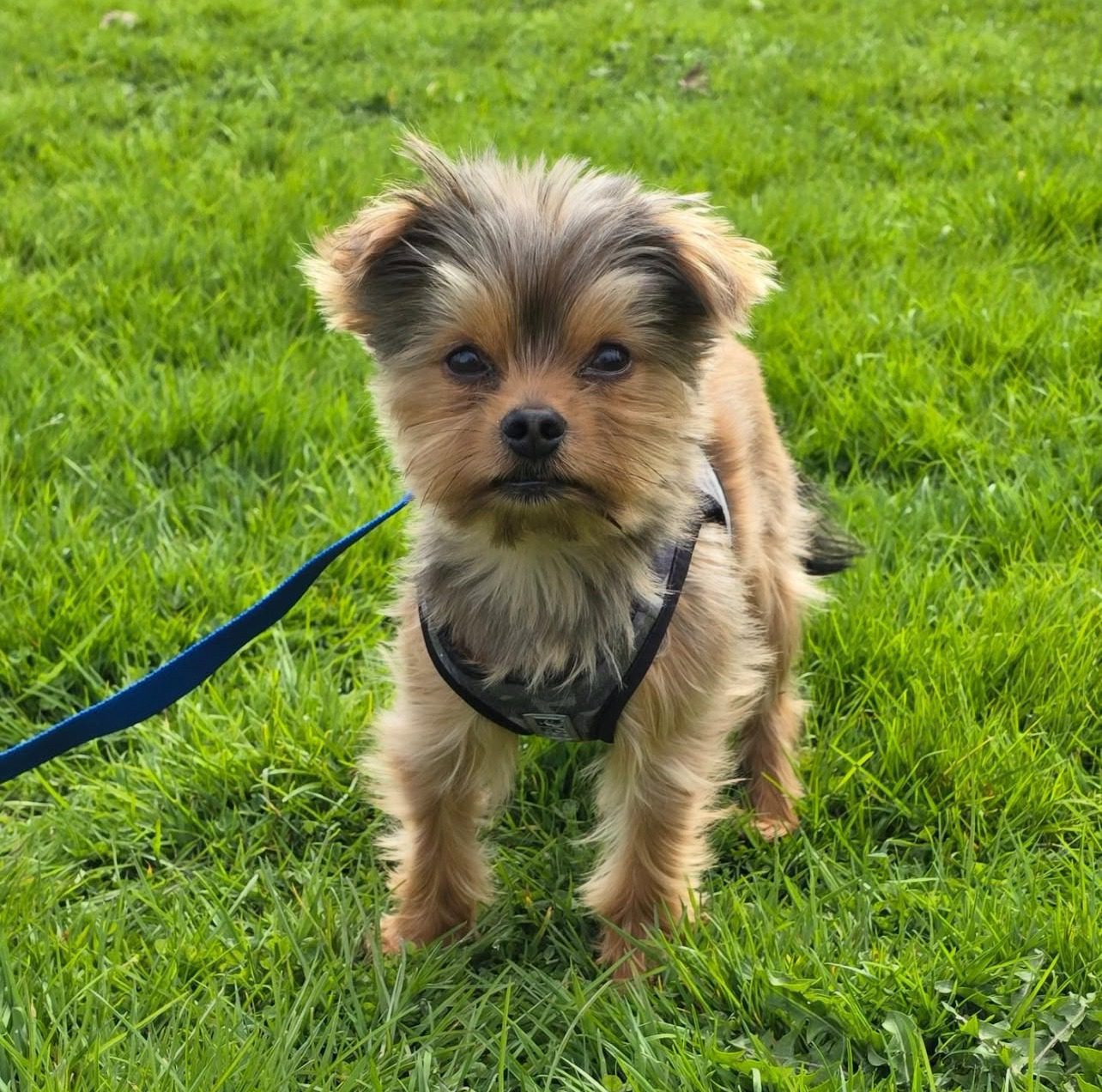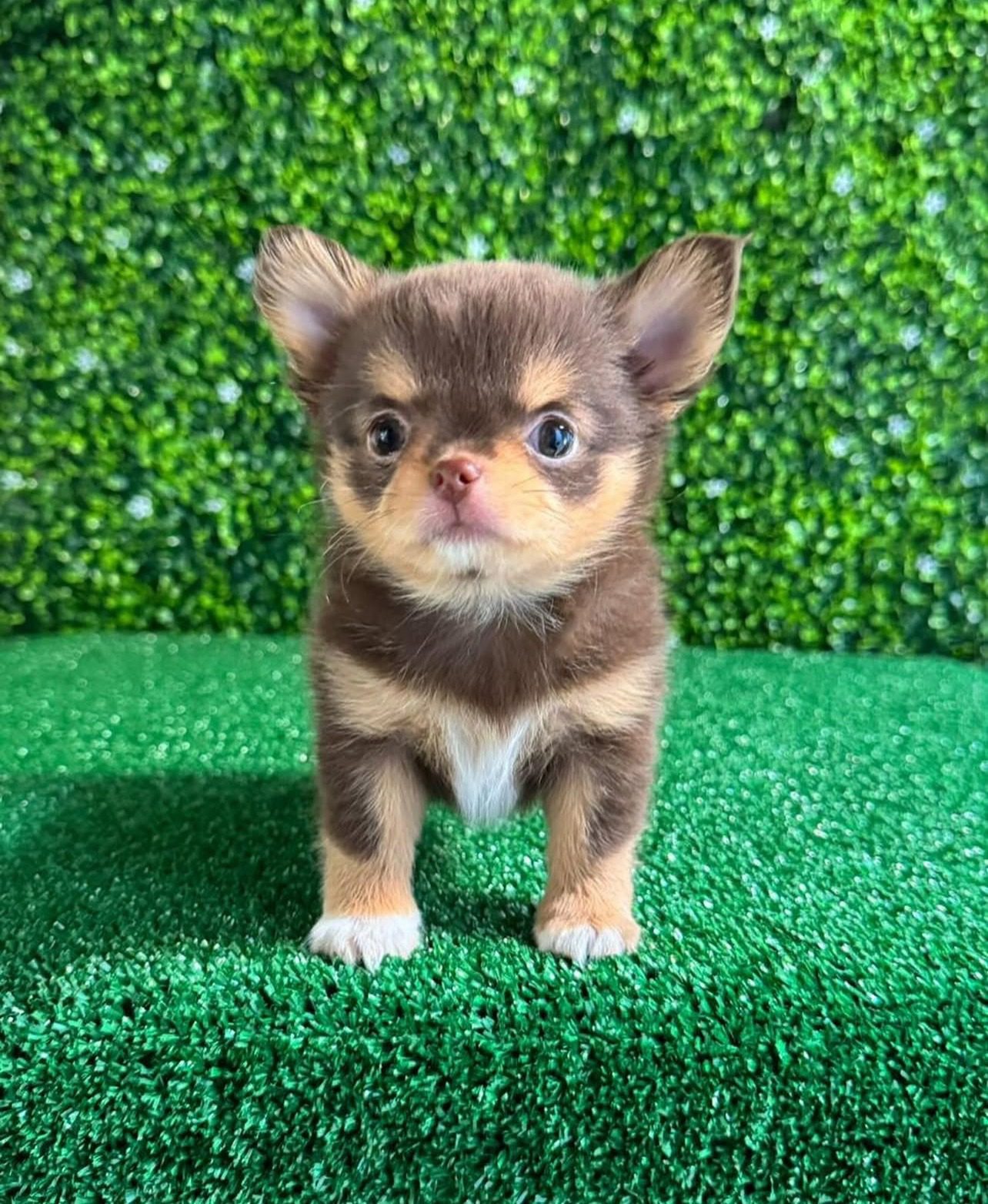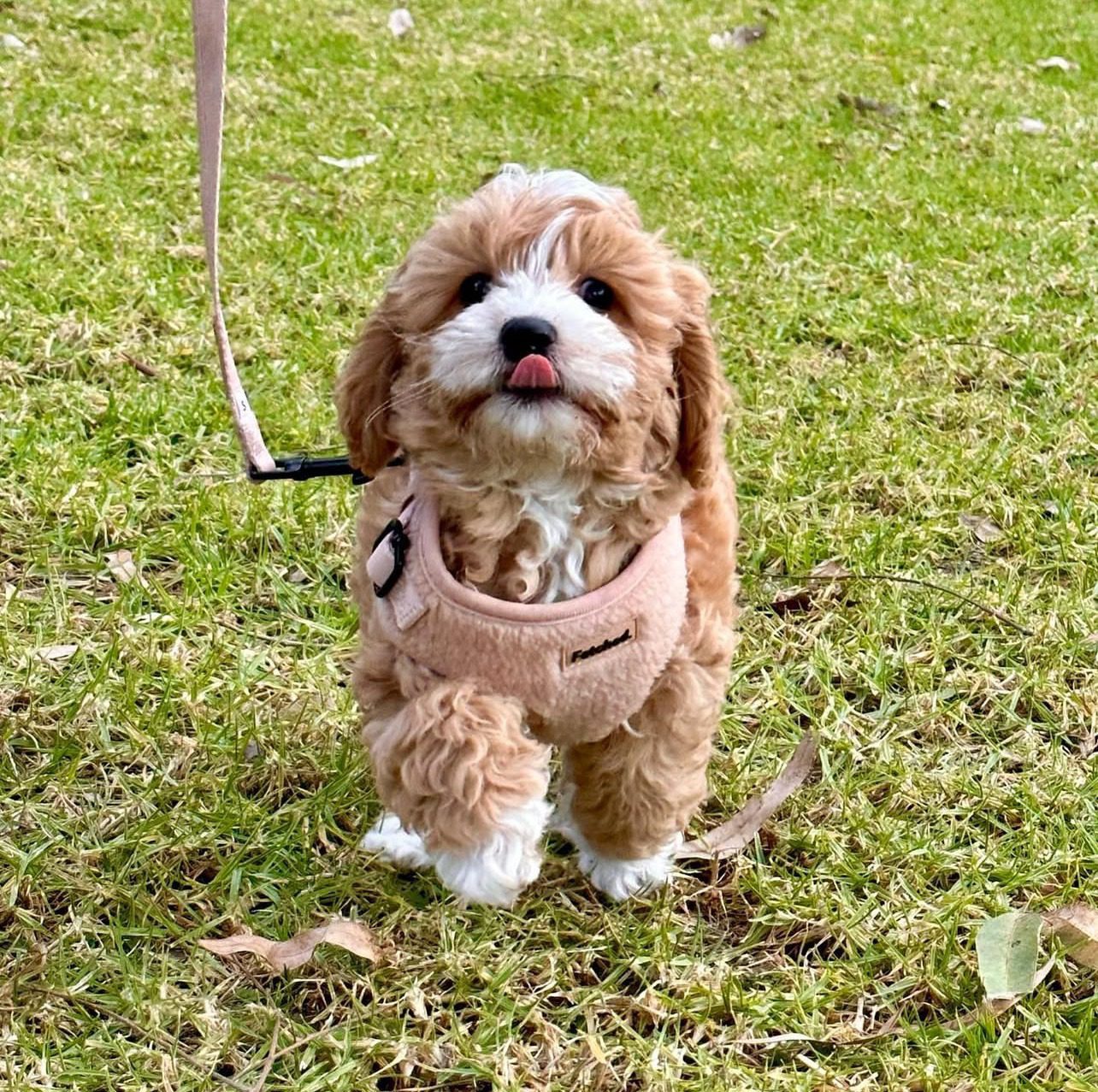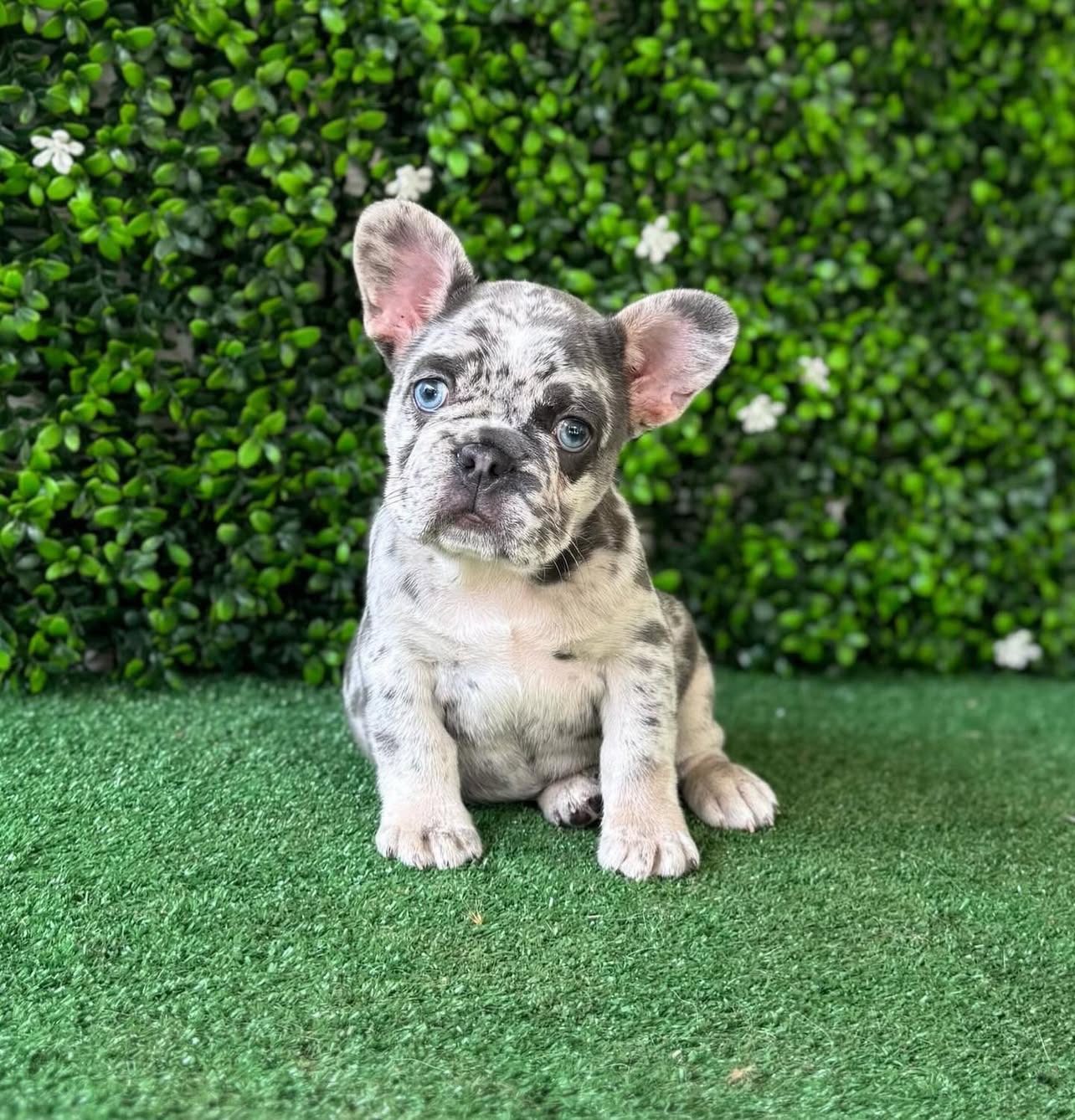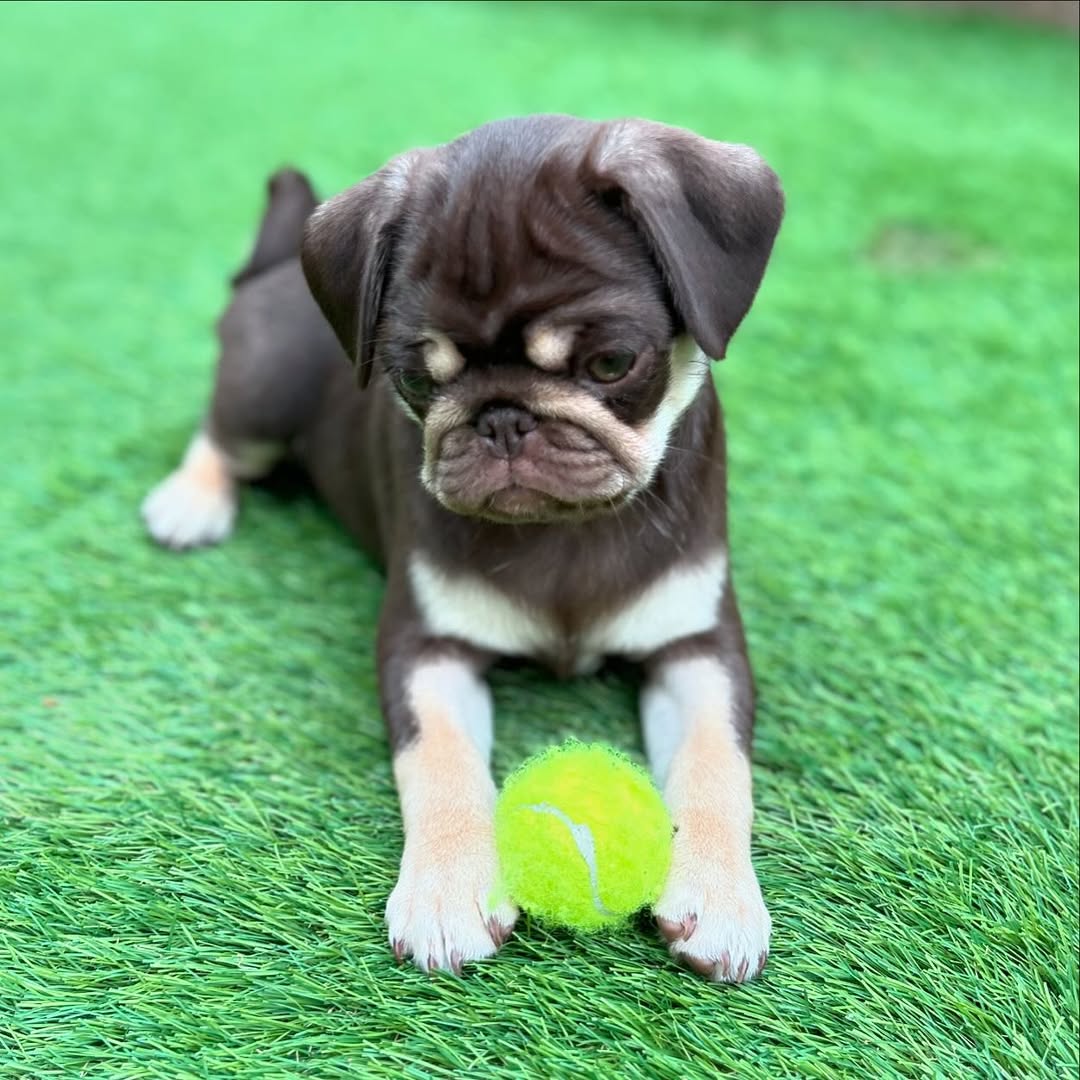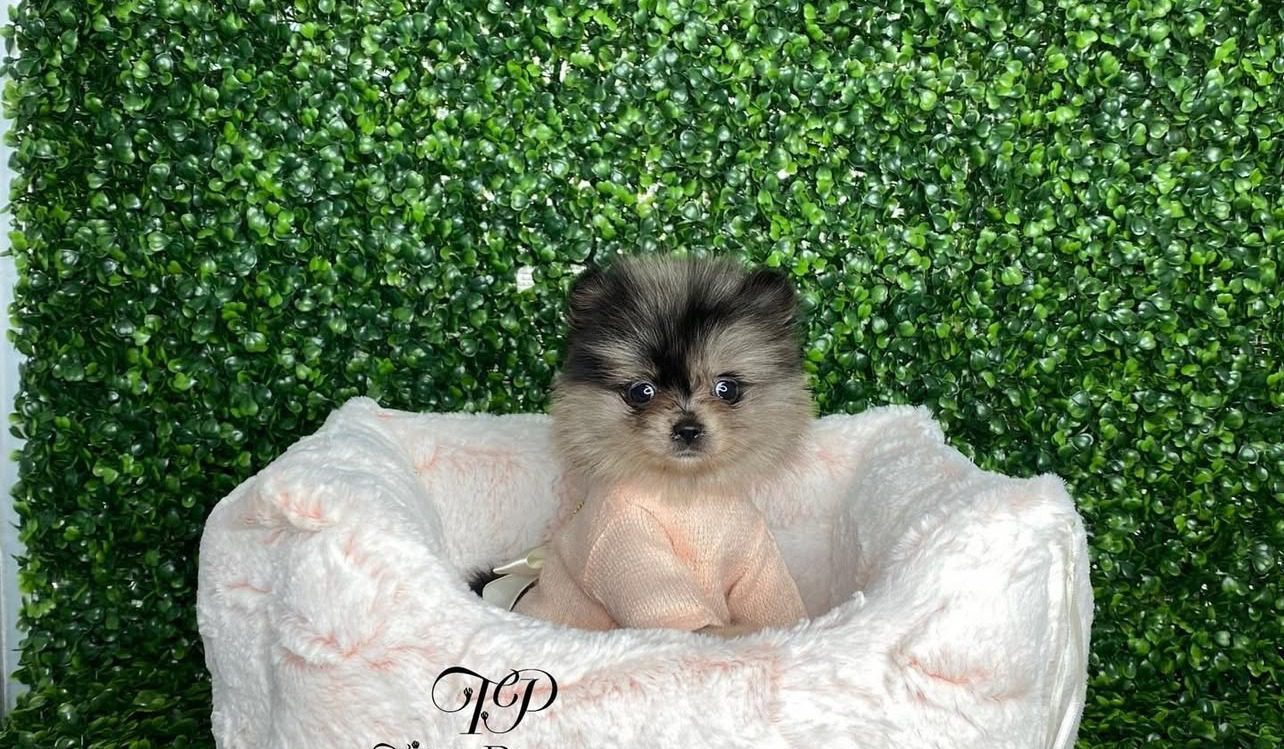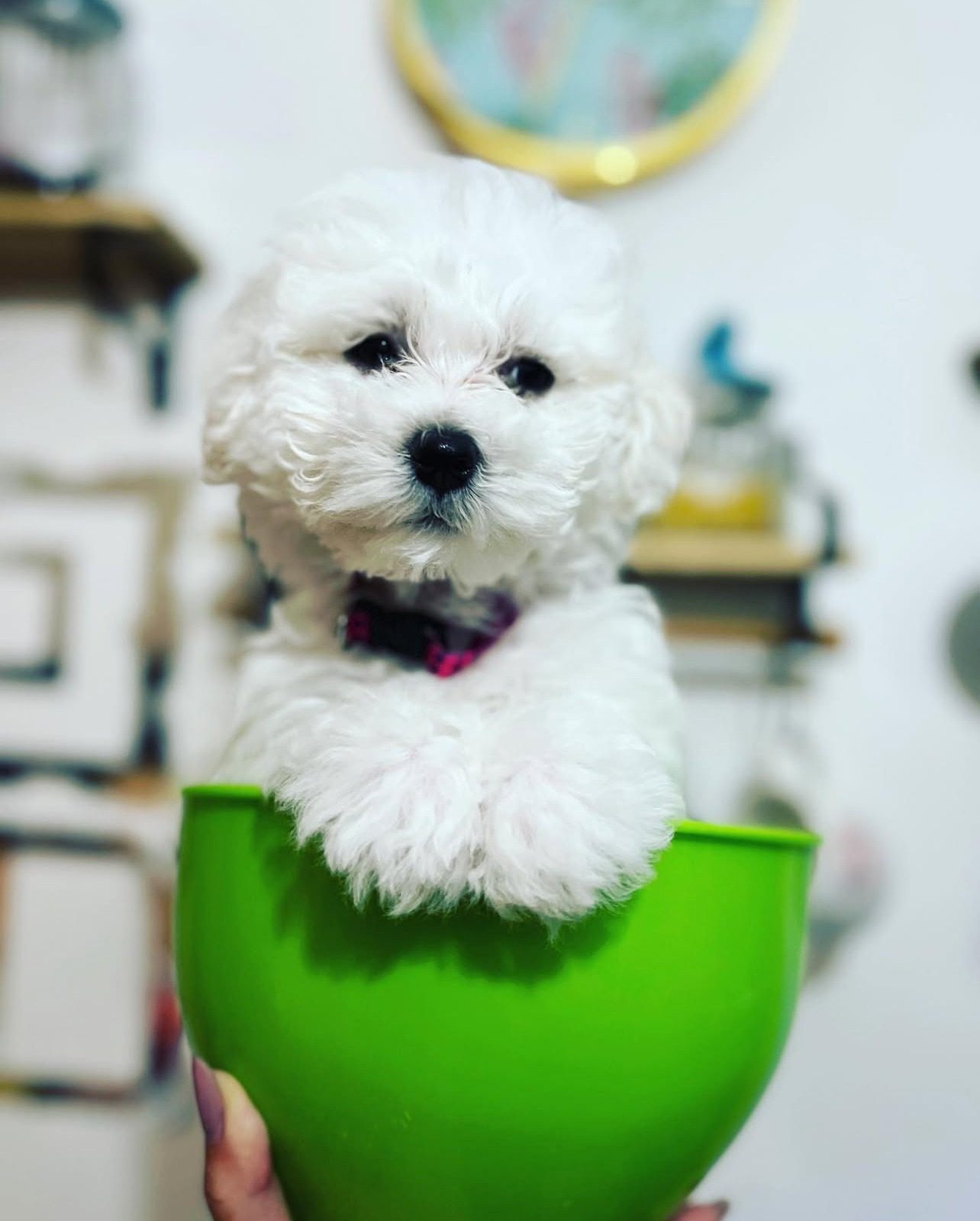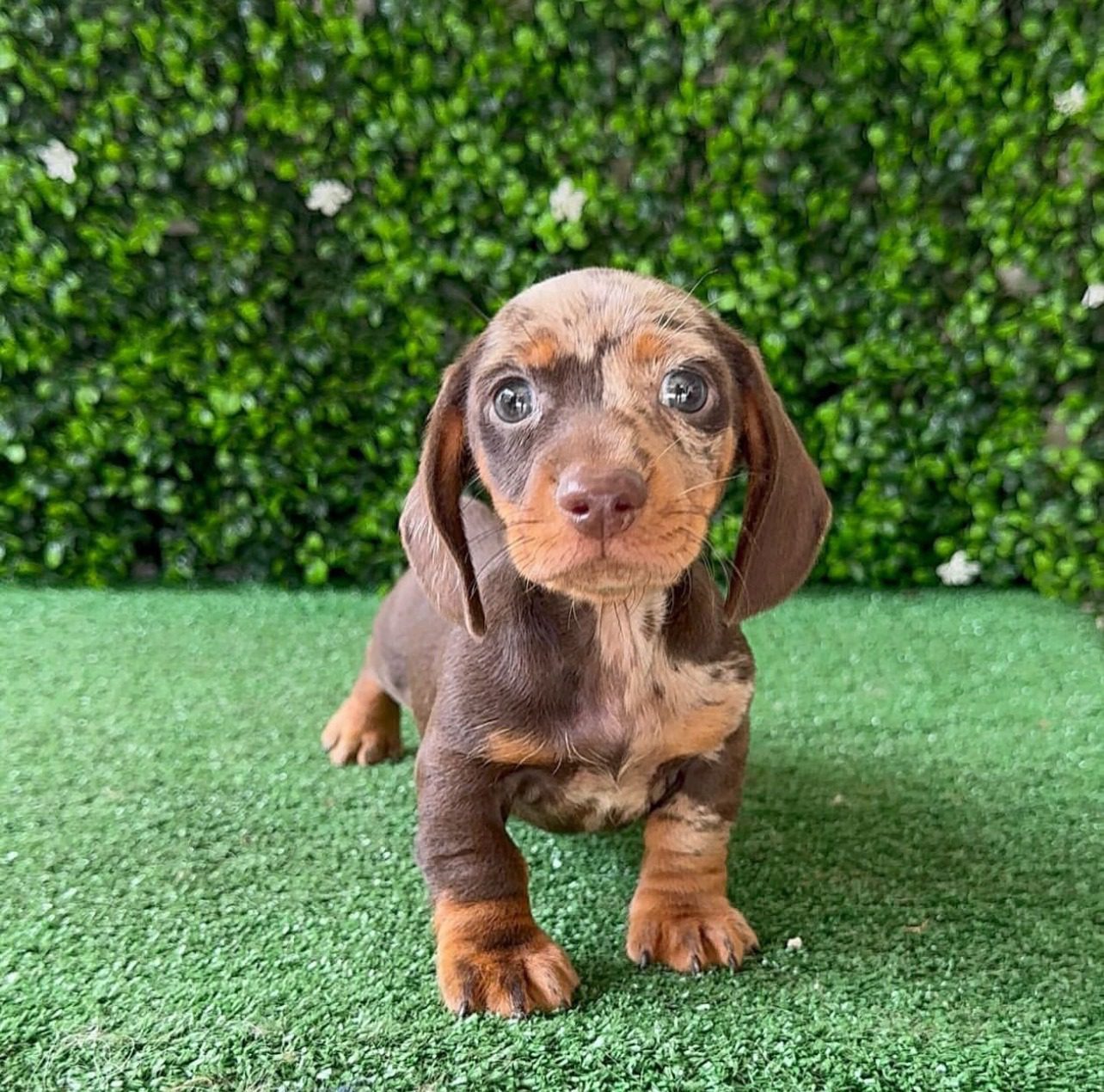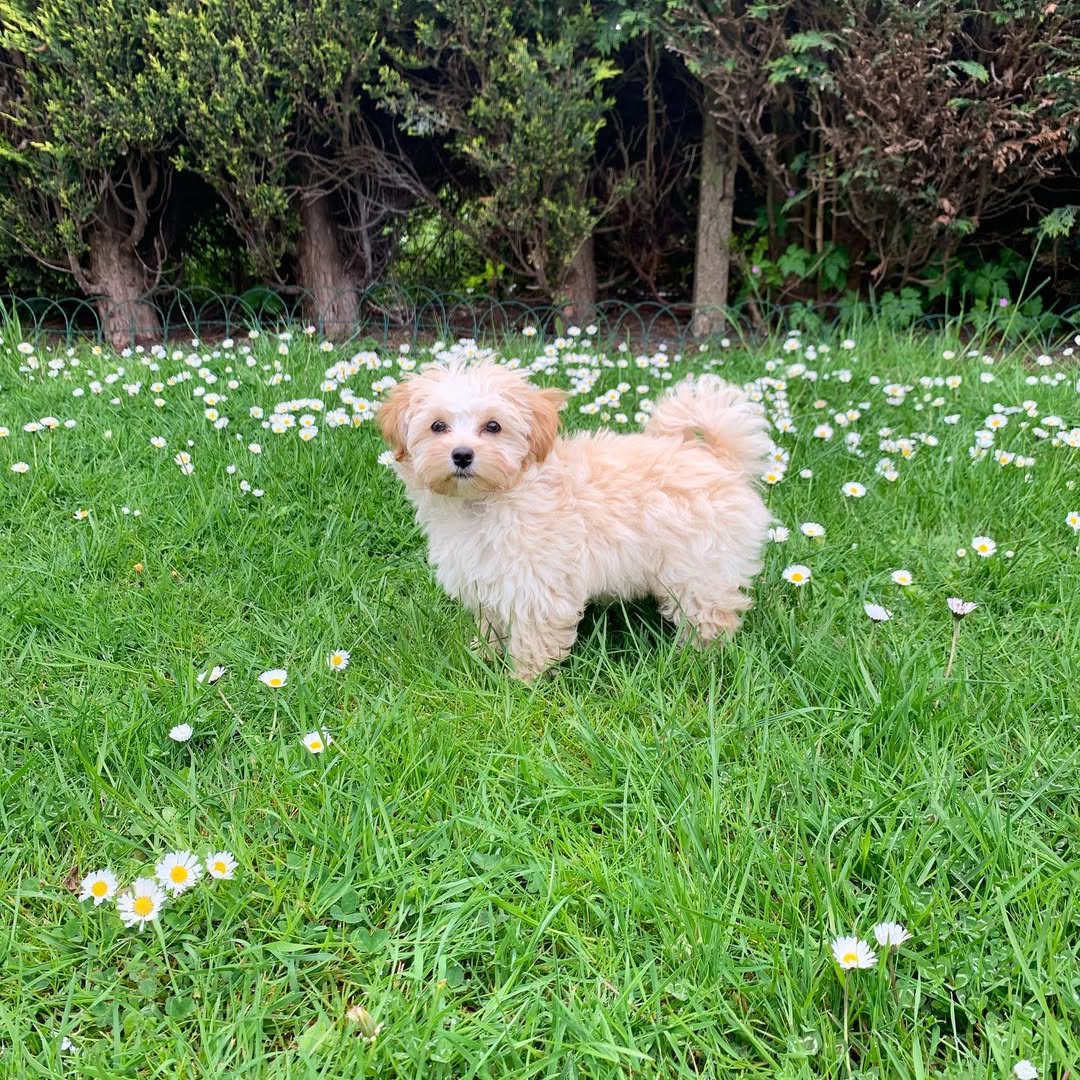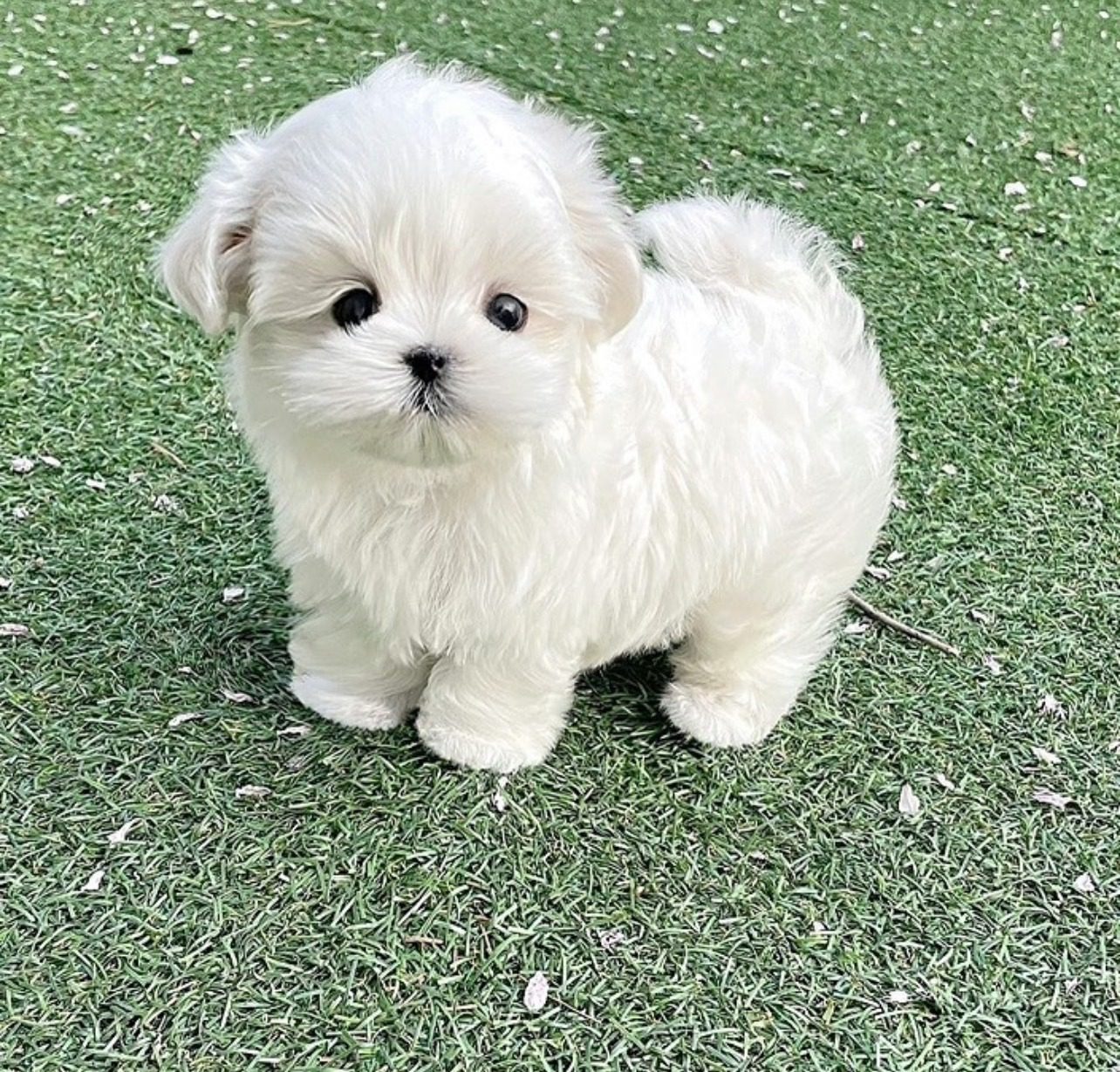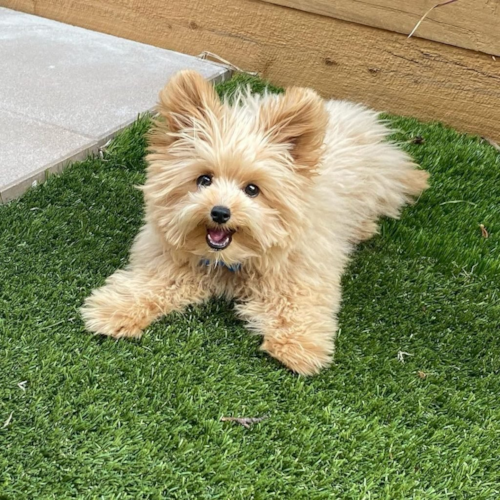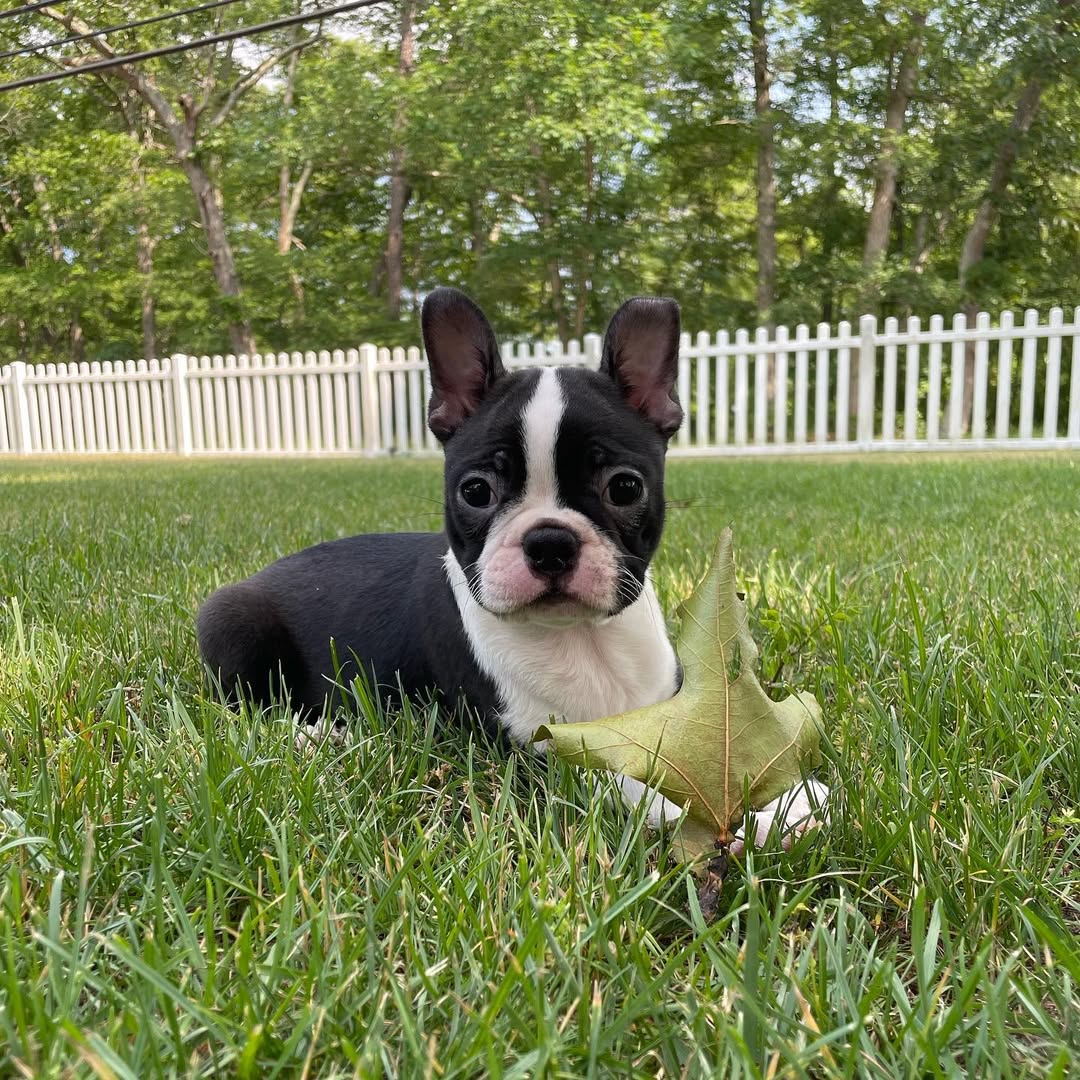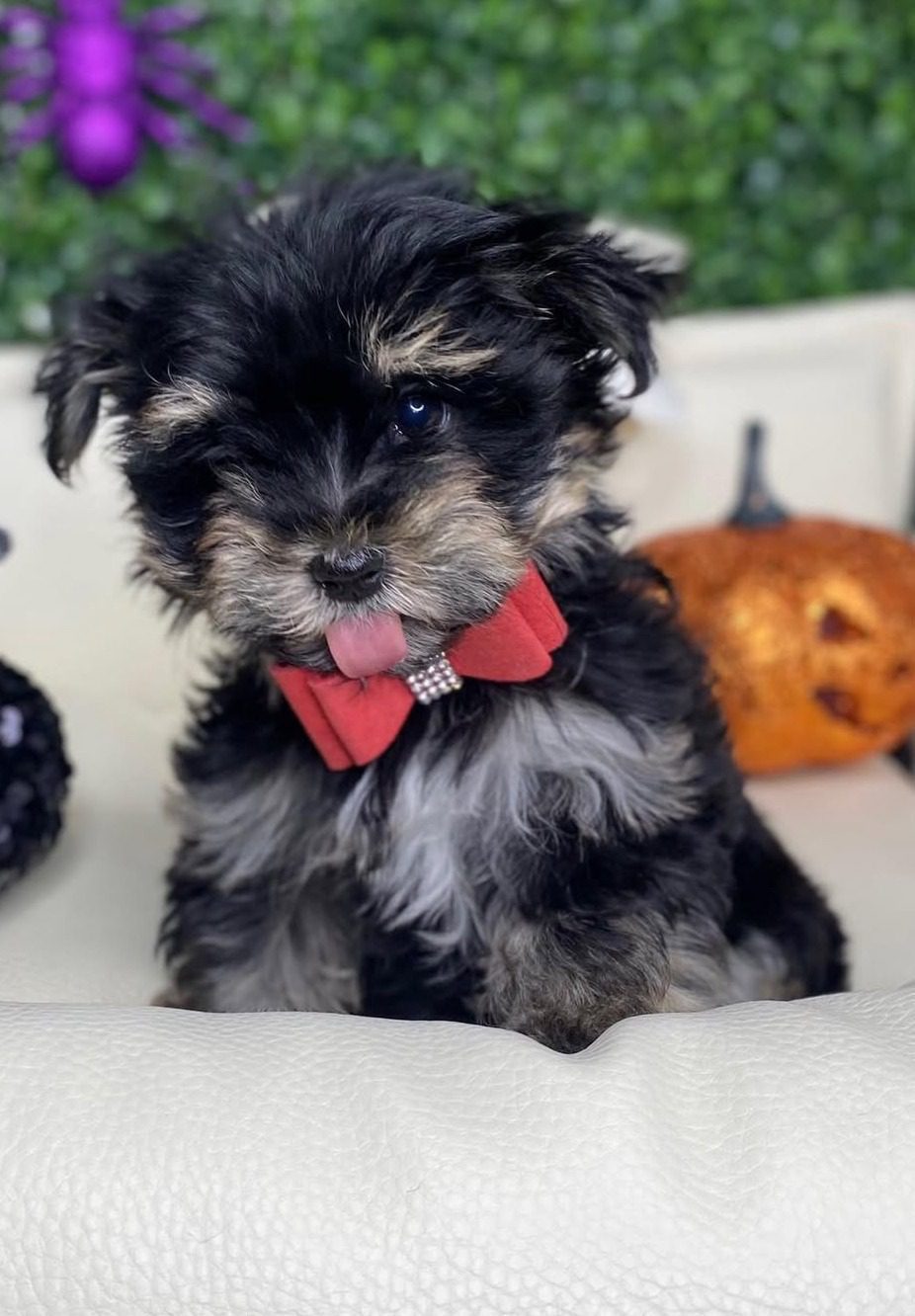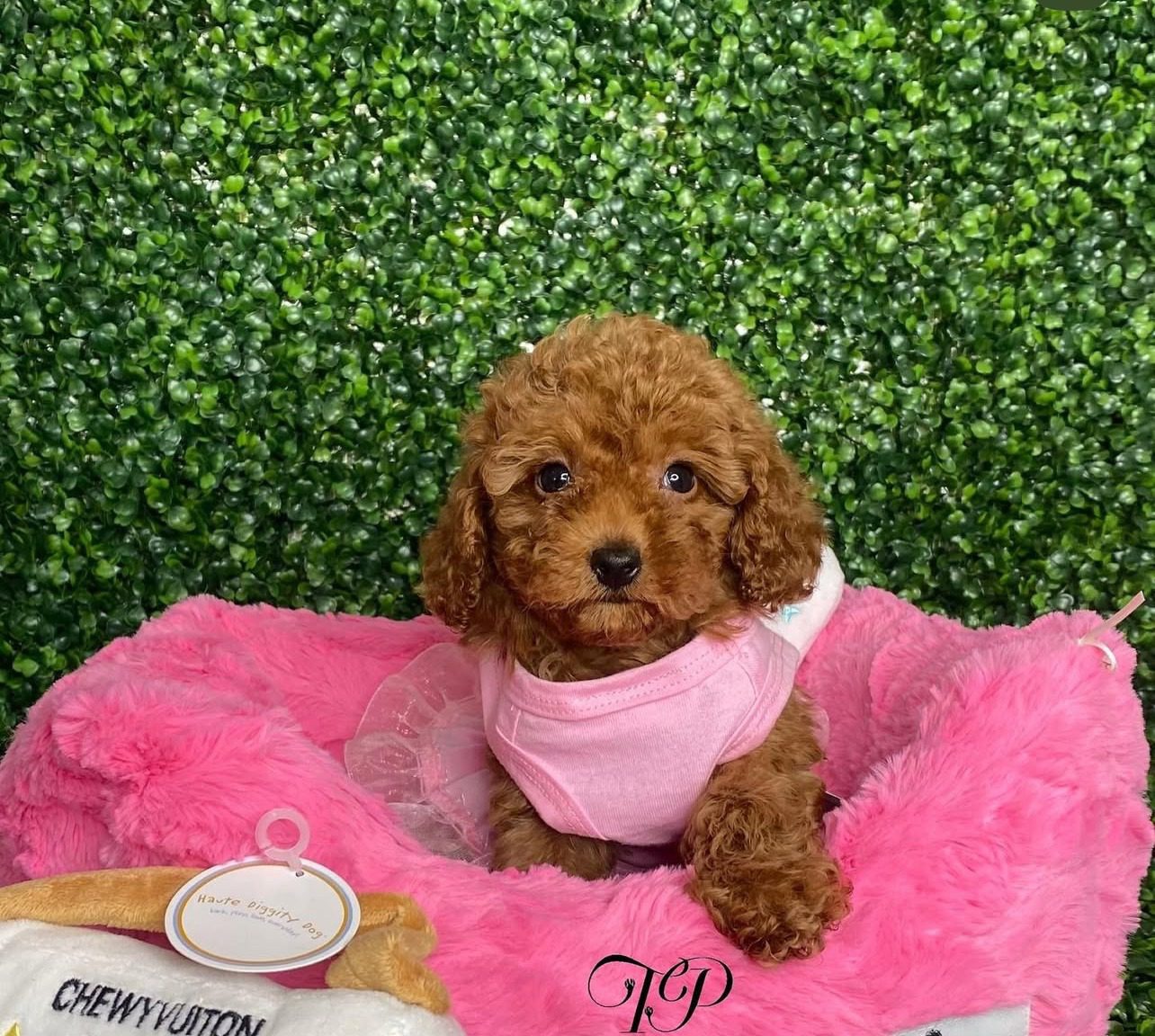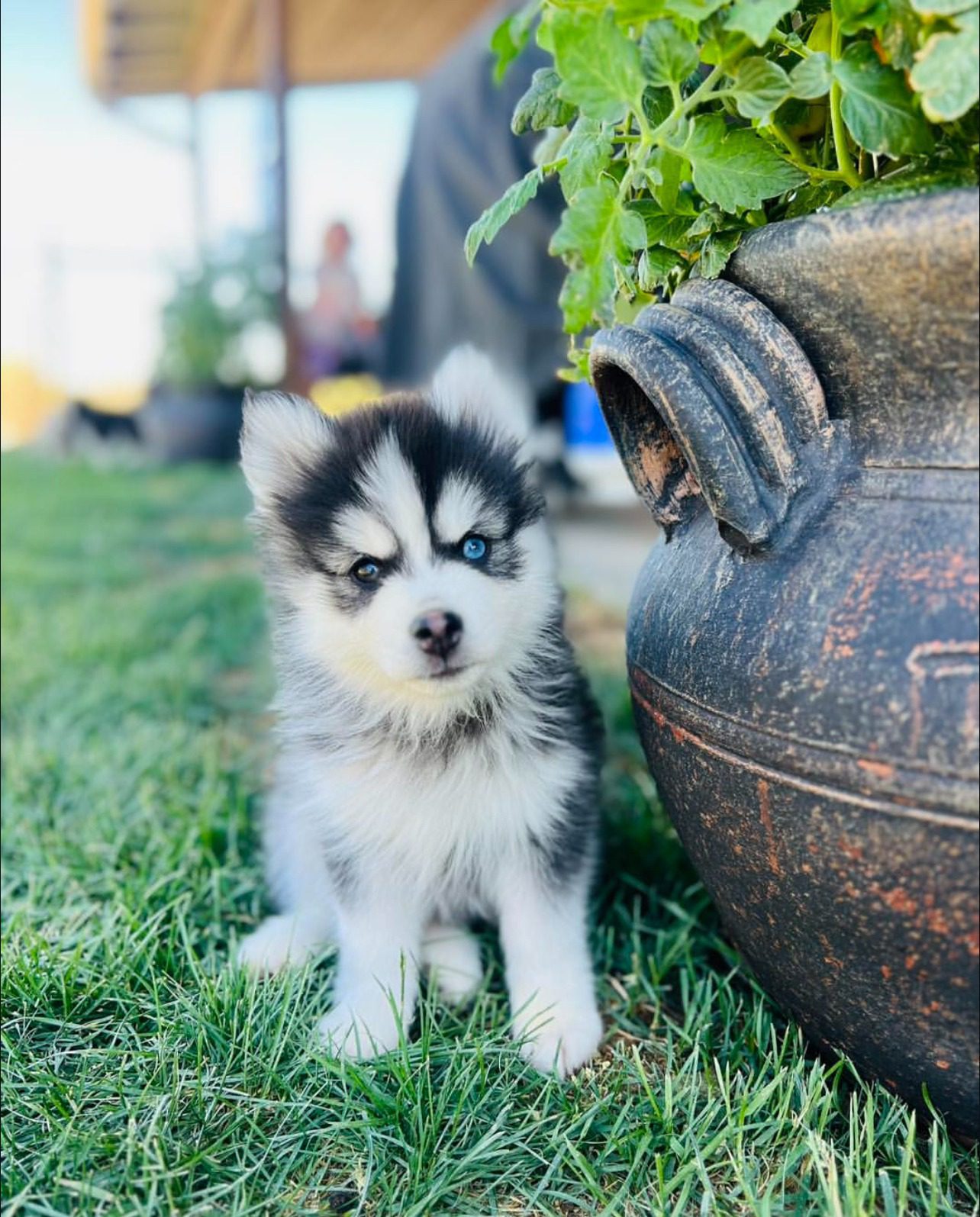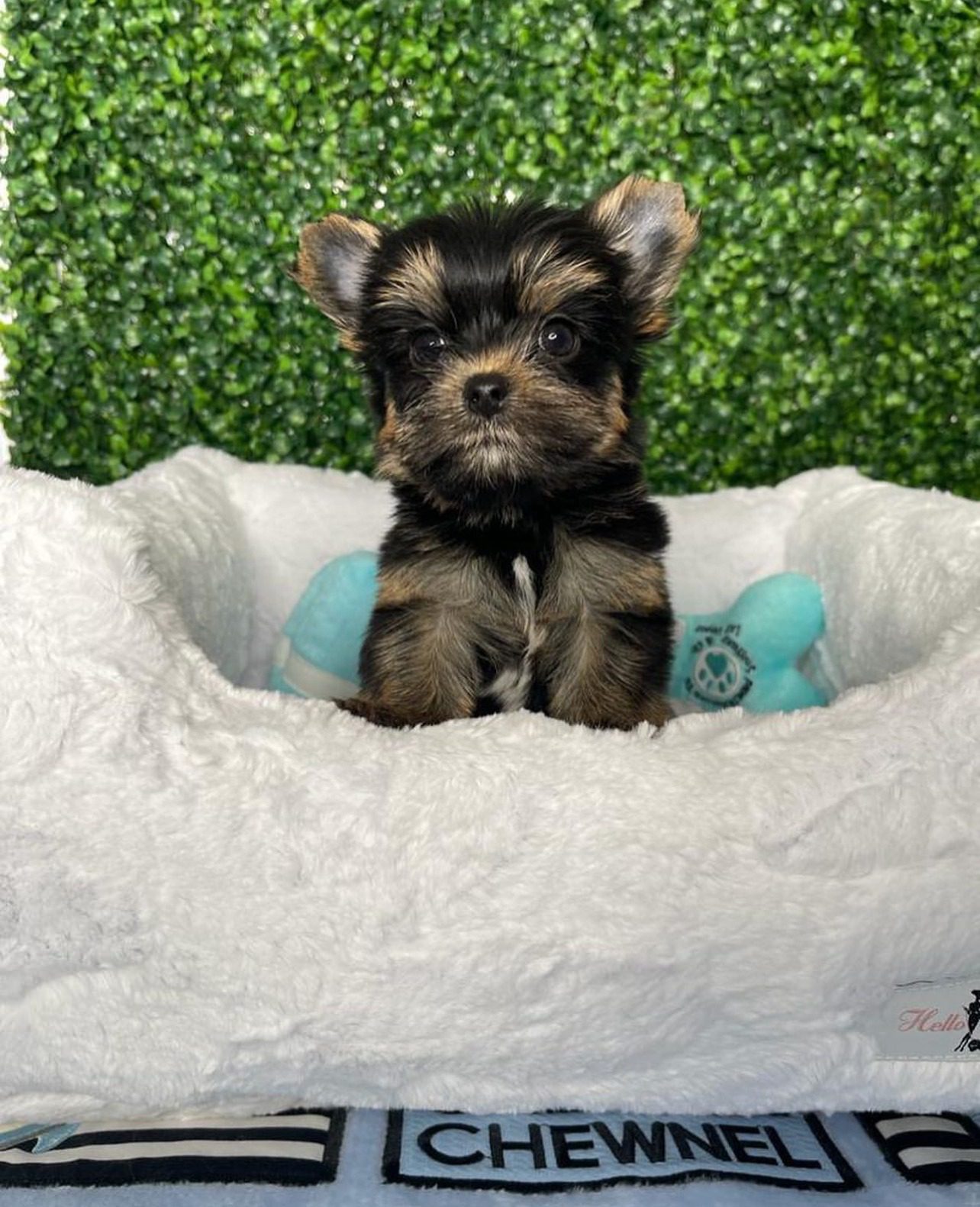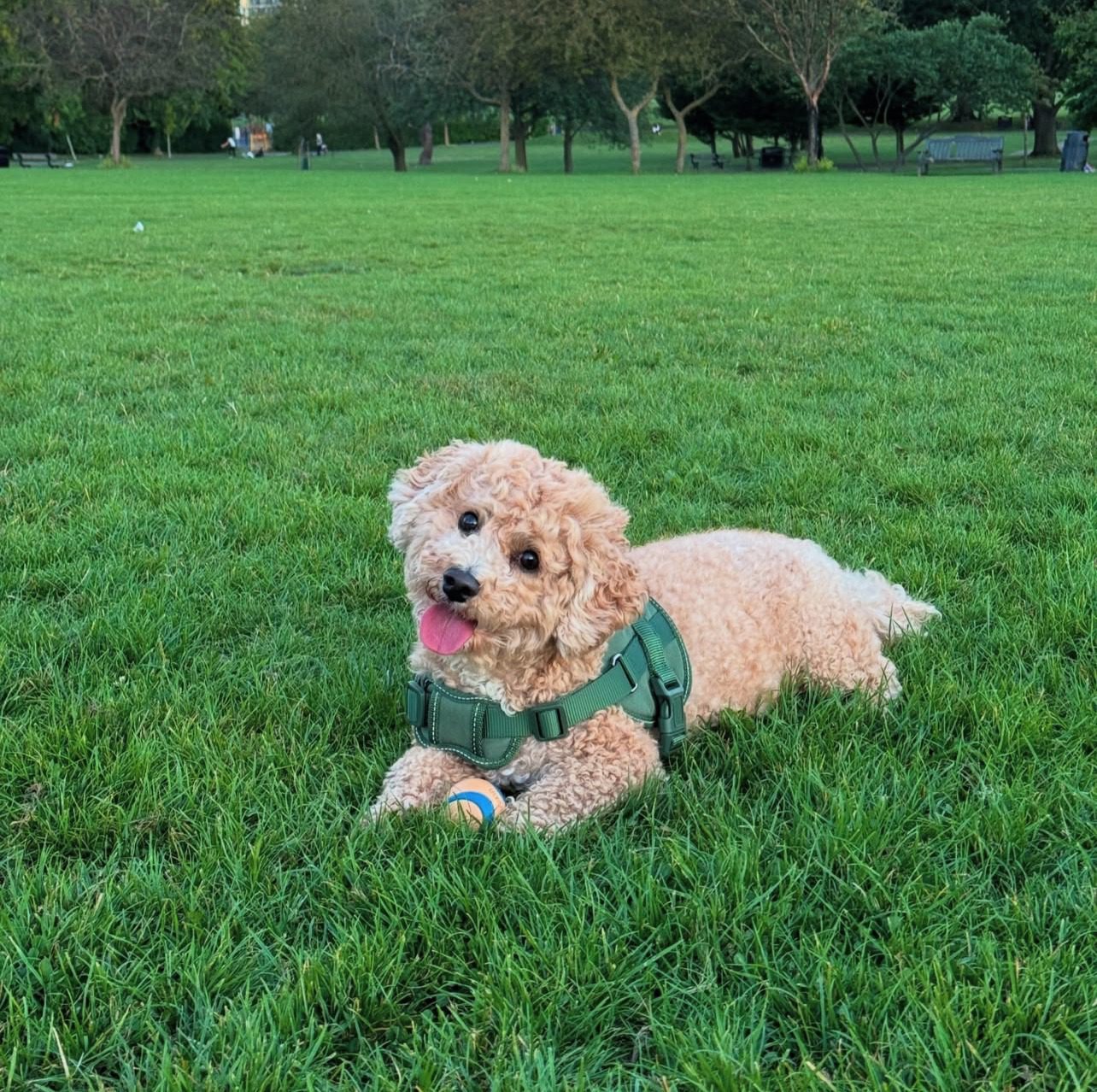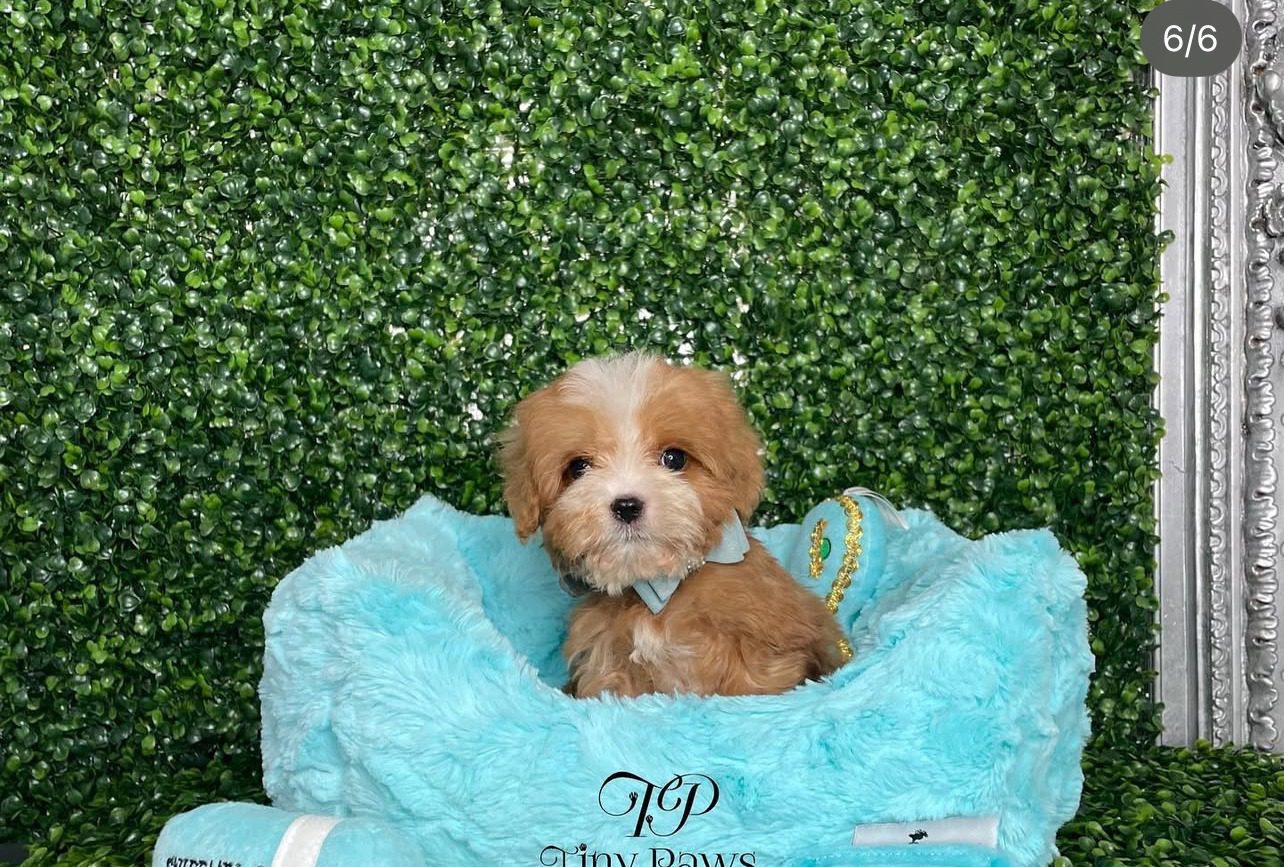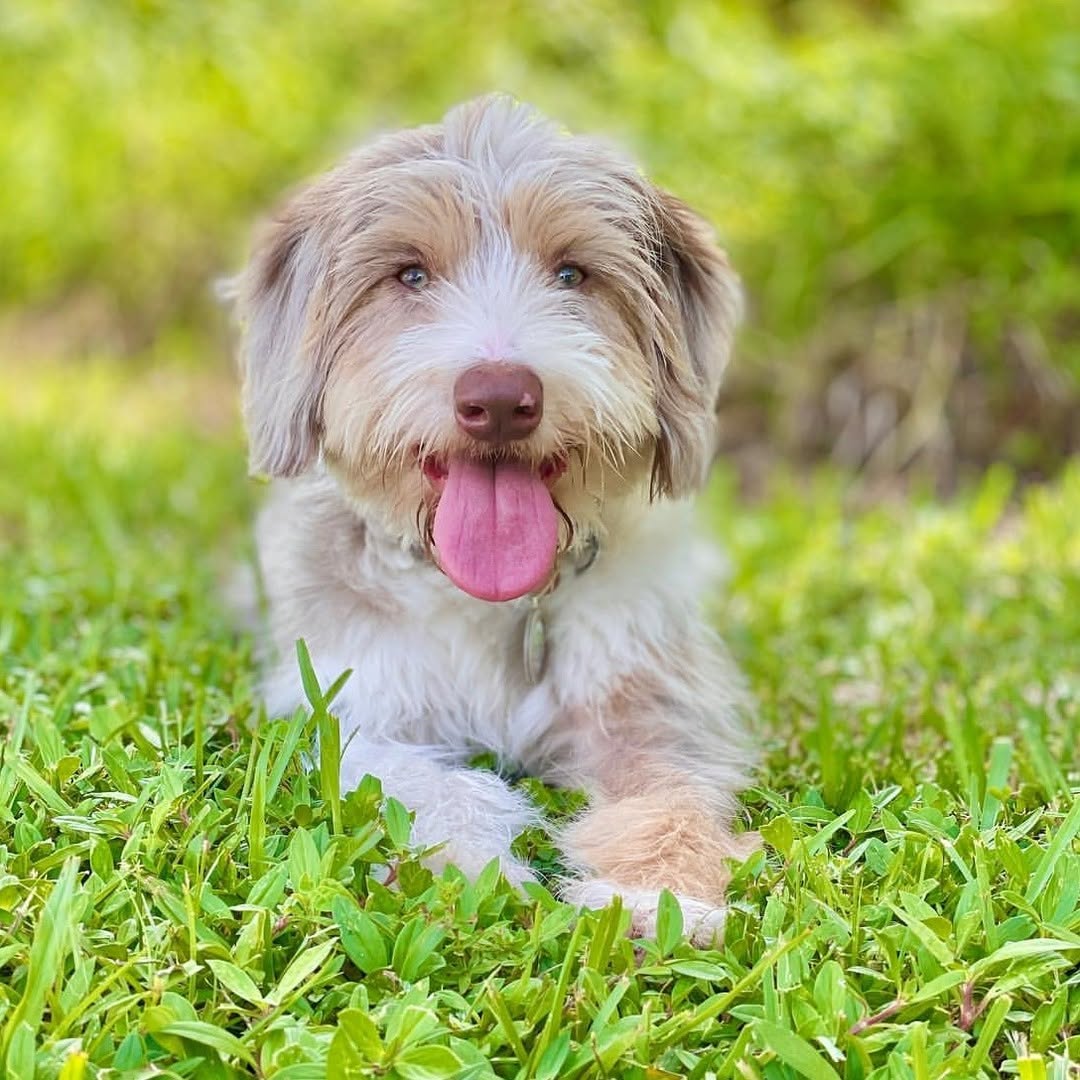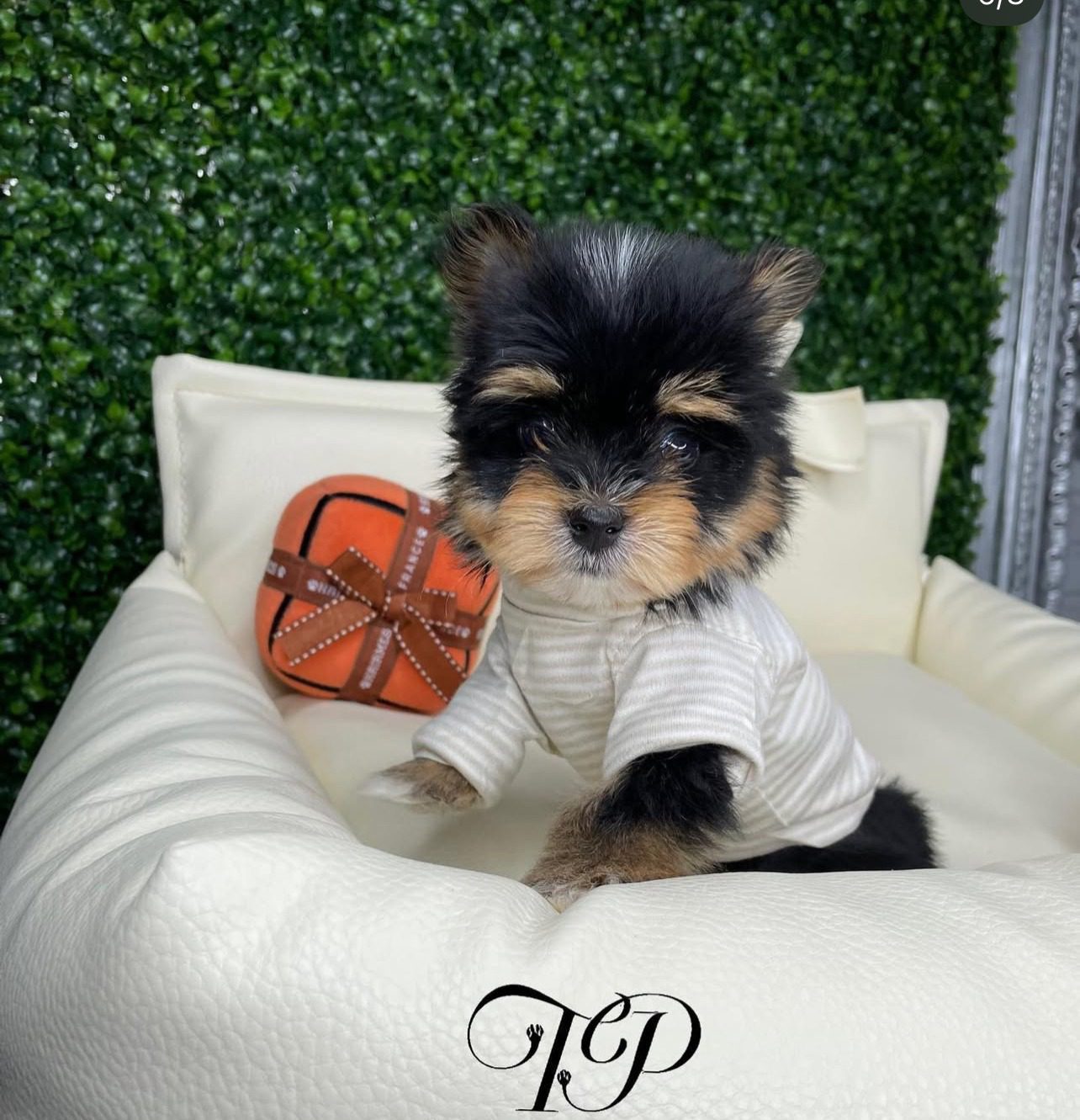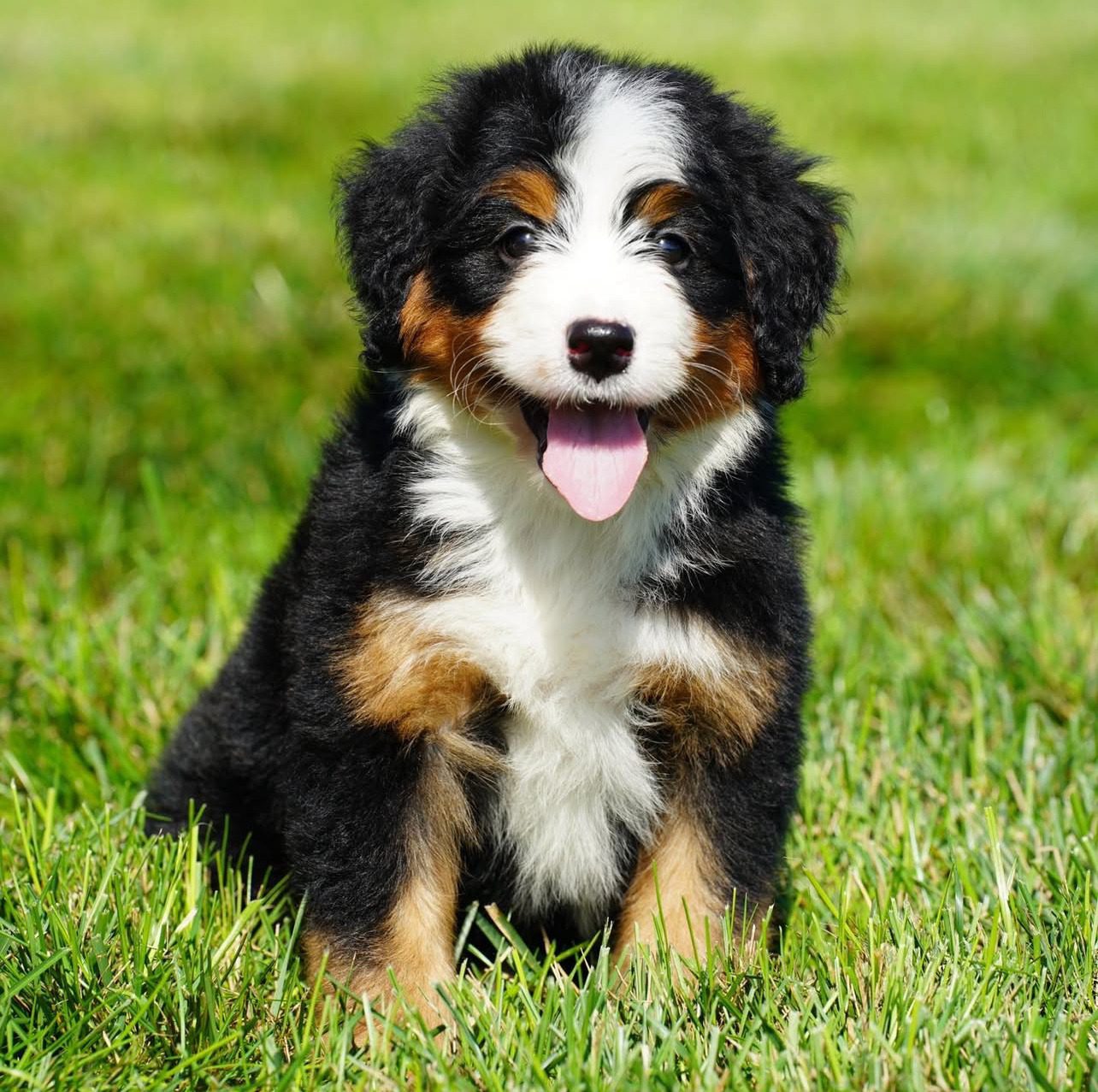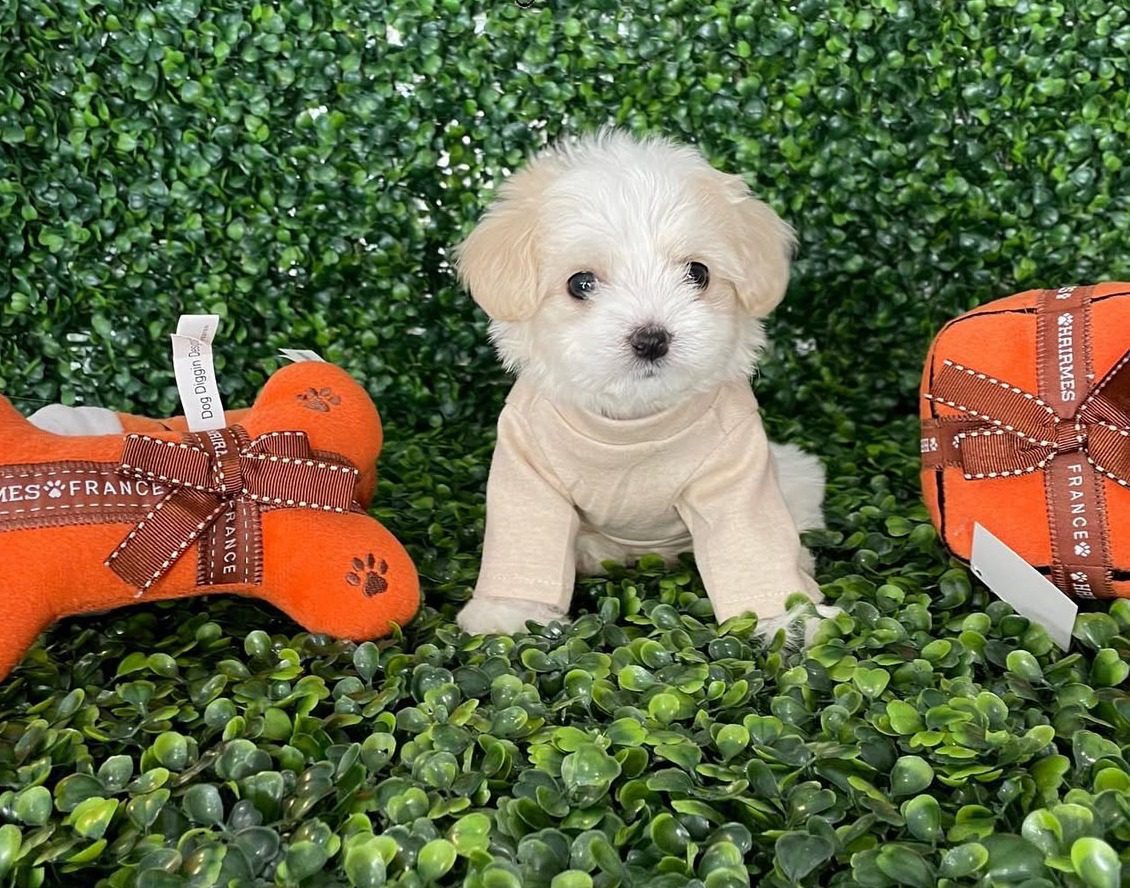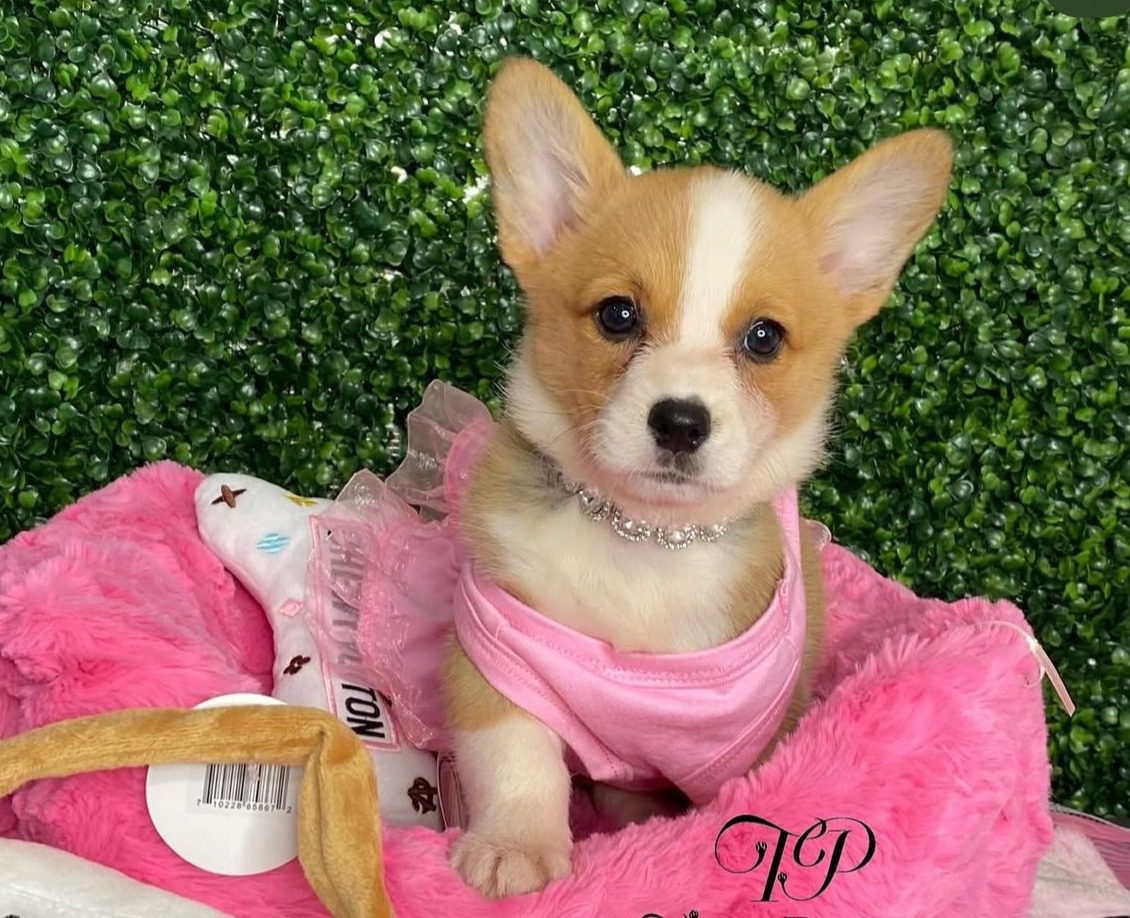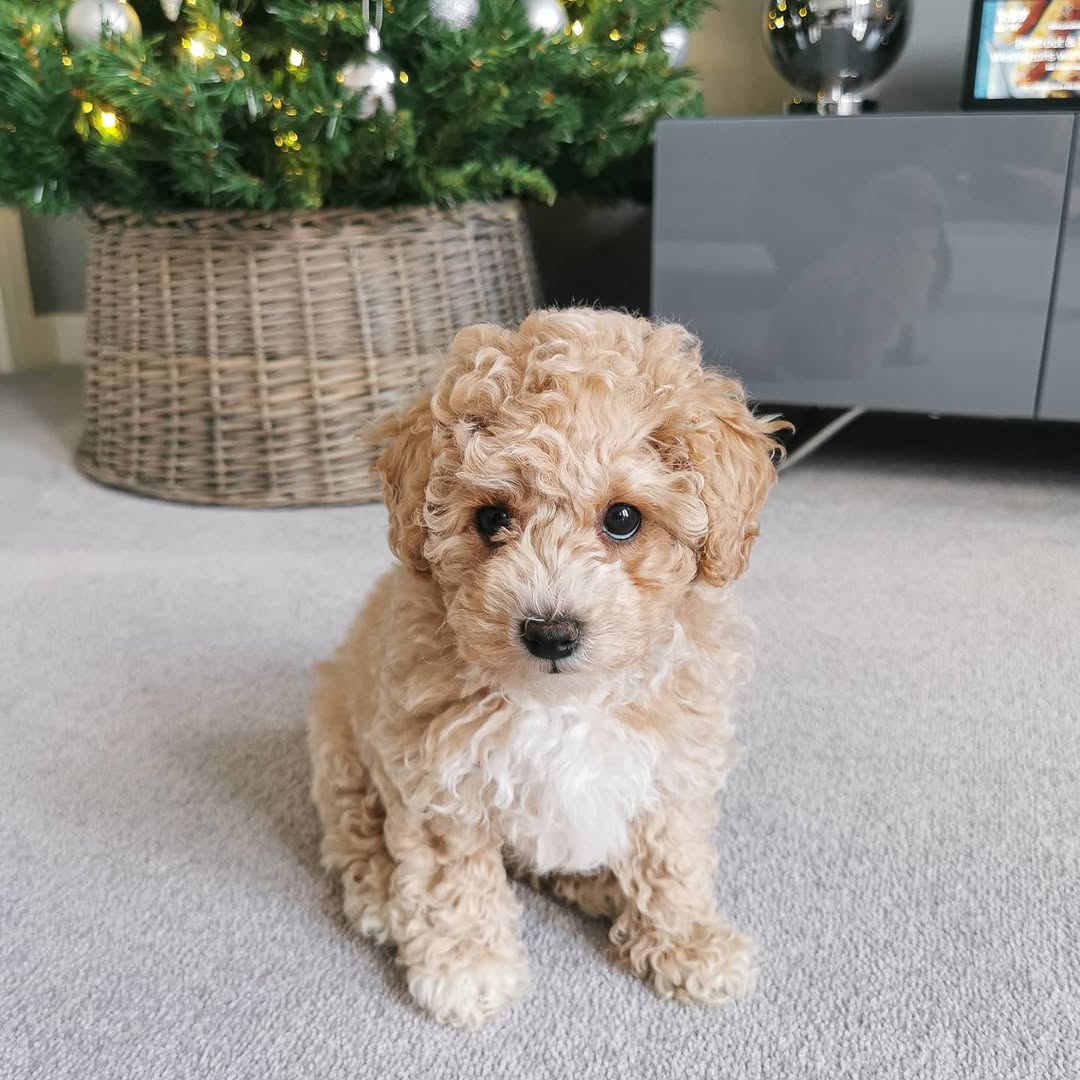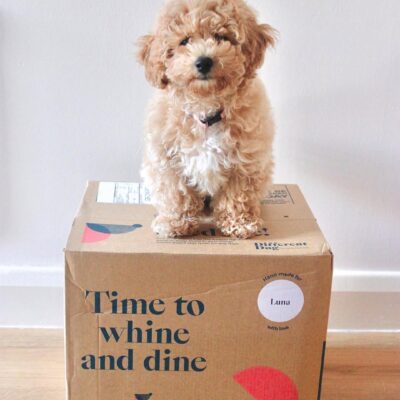About Harley
| Availability |
|
| Gender |
|
| Age | 8 Weeks |
| Transfer of Ownership | Full Transfer |
| Champion Bloodline | Therapy Dog Bloodlines |
| Vaccination | Booster Shots |
| Mode of Shipment | Air Shipping/Cargo |
| Rabies Shot | Completed |
| Deworming | Completed |
| Microchip | Implanted |
| Veterinary Health Certificate | Issued |
| Health Guarantee | Extended Health Guarantee |
| Estimated Adult Weight | 5.5 lbs |
To reserve Harley, a non-refundable $300 reservation fee is required. Secure your puppy today!
Reserve Harley Today
Why we’re the leading puppy adoption service
Your Perfect Puppy
Breeds in every size, color, and temperament
Certified Breeders
Licensed, vetted and committed to our puppies
10-Year Health Commitment
Certified documents, vaccinations, and checkups
Handle with Care Delivery
White glove delivery options to bring your puppy home
Caring Experts
Helping you every step to find your perfect puppy
Poochon Breed Info
99% of breeding parents are OFA certified
Premium Teacup Puppies prioritizes health by ensuring that nearly all of their breeding parents (99%) are OFA certified, meaning each dog undergoes rigorous orthopedic evaluations to screen for hereditary issues before entering the breeding program. This proactive approach prevents potential health problems and supports the overall vitality of the breed, ultimately fostering healthier joints, happier lives, and stronger generations.

Puppy Parents with
CERTIFICATION

Puppy Parents with
GUARANTEE
Our Puppies come with 10 Year Health Guarantee
Health is at the heart of everything we do. That's why we offer a 10-year health guarantee on our puppies—a promise that goes beyond a simple policy. It reflects our commitment to long-term wellness, ensuring that every pup is backed by rigorous screenings and care long before any health issues arise. This guarantee is our proactive investment in a future where our puppies enjoy robust joints, vibrant lives, and the enduring vitality that supports strong generations.
What exactly is a ‘Teacup Poochon’? Is this an official breed? A Poochon is a hybrid cross between a Bichon Frise and a Poodle (usually Toy). ‘Teacup’ is an unofficial marketing term used by some breeders for Poochons bred to be significantly smaller than the typical range (often under 6-7 pounds), carrying substantial health risks. Neither the Poochon cross nor the ‘teacup’ size is recognized by major kennel clubs.
How small is a ‘Teacup Poochon’ expected to be? Breeders often advertise them to mature under 6 or 7 pounds, sometimes even smaller. This is considerably smaller than a typical Poochon, whose size depends on the Poodle parent (Toy Poodle crosses are smaller than Miniature Poodle crosses). Size claims should be viewed skeptically.
Are Teacup Poochons truly hypoallergenic? While both parent breeds (Poodle and Bichon Frise) are known for low-shedding coats often suitable for allergy sufferers, no dog is 100% hypoallergenic. Teacup Poochons will likely be low-shedding, but individual reactions depend on the specific dog and the person’s allergies. Regular grooming is still essential.
What are the major health concerns associated specifically with breeding Poochons down to ‘teacup’ size? Extreme miniaturization dramatically increases risks of hypoglycemia (low blood sugar), hydrocephalus, open fontanels, fragile bones prone to fractures, collapsing trachea, heart defects, liver shunts, and severe dental overcrowding in their tiny jaws.
Do Teacup Poochons inherit health issues from both the Poodle and Bichon Frise? Yes, they can inherit predispositions from both sides, such as patellar luxation (kneecap issues), eye problems (like PRA from Poodles, cataracts from Bichons), allergies, bladder stones (Bichon), and potentially epilepsy or Addison’s disease (Poodle). These risks can be compounded by the fragility of the ‘teacup’ size.
What is the typical temperament of a Teacup Poochon? They often inherit the playful, intelligent, and affectionate nature of both parent breeds. However, their extreme physical vulnerability can make them prone to anxiety, fearfulness, or nervous behaviors if not raised in a very calm, careful environment.
How much grooming does a Teacup Poochon require? Significant grooming is needed. Their curly or wavy coat requires daily brushing to prevent mats and tangles, plus professional grooming every 4-8 weeks. Handling must be extremely gentle due to their fragile structure.
What level of exercise is safe for a Teacup Poochon? Very minimal. Short, gentle indoor play and perhaps very brief, supervised outings in a secure area are adequate. Avoid strenuous activities, jumping, rough play, or long walks, as these can easily lead to injury or exhaustion.
Is the lifespan of a Teacup Poochon generally shorter than a standard Poochon? Yes, frequently. The numerous severe health complications associated with extreme miniaturization often lead to a significantly reduced lifespan compared to the typical 12-15+ years expected for a healthy, standard-sized Poochon.
Why do puppies marketed as ‘Teacup Poochons’ often have very high prices? Prices (often $3,000-$6,000+) are inflated based on the “designer” label and the misleading “rarity” of the extreme size. This cost does not reflect ethical breeding or guaranteed health; it often supports questionable practices.
Are Teacup Poochons suitable for families with young children? Generally, no. Their extreme fragility makes them highly vulnerable to accidental injury or death from being dropped, stepped on, or handled too roughly by children. A quiet, adult-only home or one with very calm, gentle older children is much safer.
How difficult is it to house train a Teacup Poochon? It can be challenging. Very small dogs have tiny bladders requiring frequent potty breaks, and accidents can be hard to notice. Consistency, patience, positive reinforcement, and possibly using potty pads are essential.
Why do ethical breeders avoid the ‘teacup’ label for Poochons? Responsible breeders prioritize the health, temperament, and well-being of their puppies, breeding within the healthy size range for the parent breeds. They understand the severe health risks and suffering caused by deliberately breeding for unhealthy, extreme smallness and consider it unethical.
Are dental problems common in Teacup Poochons? Yes, very common and often severe. Fitting a normal number of teeth into an abnormally small jaw leads to extreme overcrowding, retained baby teeth, bite issues, and a high risk of early-onset periodontal disease. Rigorous dental care is vital.
How should a Teacup Poochon puppy be handled safely? Always use two hands, providing gentle but firm support under the chest and rear. Never allow them to jump from furniture or heights. Be constantly aware of their location. Teach everyone in the household how to interact gently and safely.
Do Teacup Poochons need special feeding to prevent hypoglycemia? Absolutely critical. Their tiny bodies have minimal energy reserves, making them highly susceptible to dangerous drops in blood sugar. Frequent (every few hours for young pups), small meals of high-quality food are necessary. Owners must be prepared to recognize and treat hypoglycemia immediately.
Can Teacup Poochons live safely with other pets? Only with extreme caution and constant supervision. While Poochons can be social, a teacup’s fragility means even playful interactions with larger dogs or energetic cats could be fatal. Any companion animals must be very calm and gentle.
What is a healthier alternative to searching for a ‘Teacup Poochon’? Look for a reputable breeder who health tests the Bichon Frise and Toy Poodle parents and aims for puppies within the healthy standard size range (e.g., 7-15 pounds). Prioritize breeder transparency, health testing, and temperament over extreme size.
Are Teacup Poochons prone to barking? They can be. Both Poodles and Bichons can be alert barkers. Early training and ensuring they aren’t left alone excessively can help manage barking, but expect some level of vocalization.
Do Teacup Poochons require sweaters or coats in cool weather? Yes, often. Their small body mass and potentially thin coat make it difficult for them to regulate body temperature. They are sensitive to cold and may require clothing for warmth, even indoors sometimes.

